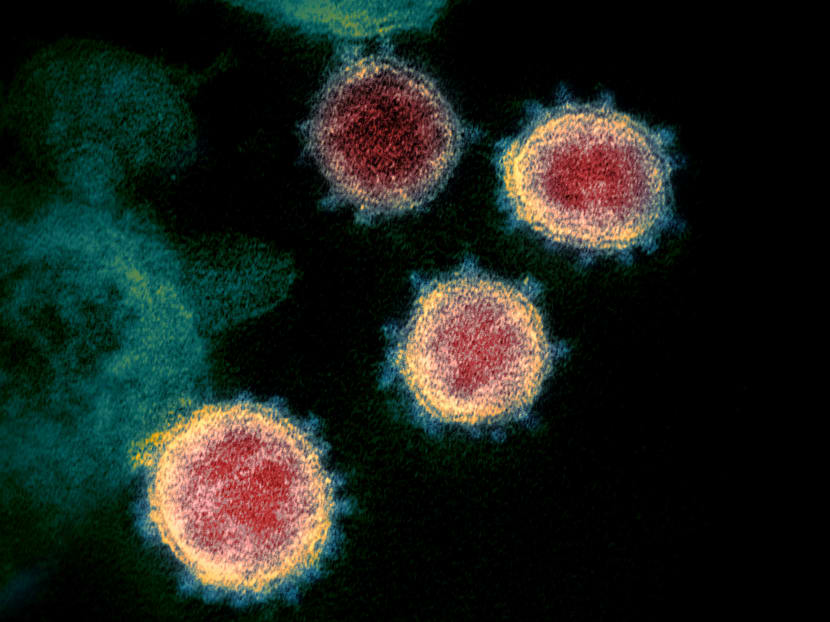Covid-19 patient’s mild symptoms but long illness may point to ‘chronic’ mutation: Researchers
HONG KONG — Chinese researchers have raised the possibility that a new subtype pathogen of Covid-19 that has low toxicity but with prolonged ability to infect others might have occurred after observing a rare case in which the disease appeared to be “chronic”, pointing to the possibility of a mutation.

A transmission electron microscope image shows Sars-CoV-2, the virus that causes Covid-19, isolated from a patient in the US.
HONG KONG — Chinese researchers have raised the possibility that a new subtype pathogen of Covid-19 that has low toxicity but with prolonged ability to infect others might have occurred after observing a rare case in which the disease appeared to be “chronic”, pointing to the possibility of a mutation.
The researchers warn there may be more “chronic infected patients” who carry the infection into their surroundings and trigger an outbreak.
A middle-aged man whose symptoms were not severe appears to have formed a “dynamic balance” with the coronavirus after an extremely prolonged illness lasting 49 days, Chinese military researchers reported in a preprint article on Medrxiv.org last week.
The patient had been observed to have both a high Covid-19 viral load and, at the same time, his immune cell indicators had remained stable.
“The virus and the host may even form a symbiotic relationship,” said the researchers from the Army Medical University in Chongqing, No 967 Hospital of PLA, Dalian, and General Hospital of the PLA Central Theatre Command in Wuhan.
As the signs showed that his body could not eliminate the coronavirus with regular therapy and that he might still have been infectious, the patient was treated with a plasma transfusion from recovered Covid-19 patients.
The man’s swabs turned negative two days later.
It was, to date, the longest known duration of “viral shedding” for a patient who survived Covid-19. Previous clinical observation showed the median time of surviving patients turning negative was 20 days, with the longest case at 37 days. Usually, the longer the duration is, the more severe the case.
This patient, however, had intermittent low fever and did not have a cough, chill, shortness of breath or other typical Covid-19 symptoms. CAT imaging of the patient showed infection lesions on bilateral lungs, which disappeared a few days after he was admitted to hospital, and his body temperature also returned to normal, the researchers found.
The patient’s nucleic acid test for Covid-19 remained positive with a consistently high viral load similar to those of severe or critical cases, which suggested a prolonged infective ability.
The case “may tend to be a chronic infected case without transfusion treatment”, the researchers said.
An elderly woman related to the patient also tested positive for Covid-19 and showed moderate symptoms. However, despite the higher risk associated with her age and pre-existing conditions, she had a faster recovery and a better prognosis than the average of others her age.
The epidemiological survey found no other positive results among the family cluster’s close contacts.
Researchers believe such information may indicate a new mild subtype of the virus, which has lower toxicity and weaker transmissibility but is more difficult to eliminate.
They warned that there might be more such “chronically infected patients”, who were more likely to be neglected but could go on to spread the infection in their surroundings and cause a new outbreak.
Whether the “chronically infected patients” will infect through new routes of transmission, such as sexual transmission, also remains to be investigated. SOUTH CHINA MORNING POST






